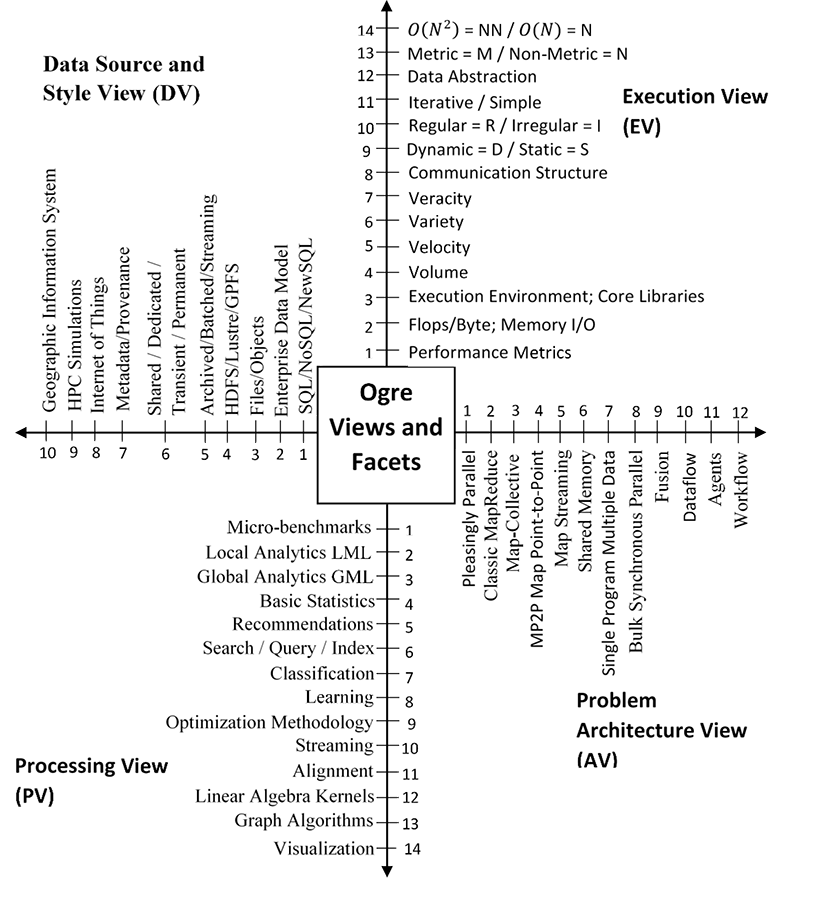For more information on SPIDAL's efforts to promote Research Experiences for Undergraduates, visit the Digital Science Center website.
Dr. Geoffrey Fox delivered a presentation entitled 'Middleware and High Performance Analytics Libraries for Scalable Data Science' at a workshop in the Pittsburgh Supercomputing Center on May 17, 2016. Additional information can be found in the Papers section under Indiana University.
The first workshop in the series STREAM2015 was held in Indianapolis on October 27th and 28th, 2015. Its focus was on application features and requirements as well as hardware and software systems needed to support them. More details are available here.
Members of the community are invited to submit a 1-2 page White Paper/Statement of Interest in areas of relevance to the workshop's scope and objectives. White papers are due by September 21 and should be sent to workshop organizers. Participants will be selected based upon relevance of submissions as well as strategic balance of expertise. Partial travel support is available
Indiana University is pleased to host a new Intel Parallel Computing Center as part of their longstanding tradition blending industry and academia. Prof. Judy Qiu heads this new center which also includes Prof. Steven Gottlieb of the IU Physics Dept. In addition a $320,000 award from Intel will be used in funding research contributing to the SPIDAL project.
A hands-on workshop on the topic of CINET, a web-based network analysis tool, was hosted by the Virginia Bioinformatics Institute at Virginia Tech on July 10 and August 11, 2015. More information here.
In addition, Prof. Judy Qiu hosted a seminar on data analytics enhancement while attending the CINET workshop on July 9. Information on this seminar is found below:
Agenda: 'Towards HPC-ABDS: An Initial Experience Optimizing Hadoop for Scalable High Performance Data Analytics'
Meeting number: 649 086 224
Audio connection:
+1-855-749-4750 US TOLL FREE
+1-415-655-0001 US TOLL
Access code: 649 086 224
Meeting link here
Kansas is preparing a 3-D imaging test setup for Dr. Crandall at Indiana University. This test setup is being designed to help ease integration of Dr. Crandall's global optimizer work into our 3-D imaging routines. We are also doing background reading on hidden Markov models and network flow algorithms for global optimization so that we can better support the integration.
In March 2015, co-PI Prof. Judy Qiu received an Outstanding Junior Faculty award from Indiana University, as related in this IU newsletter.
An October 2014 article from Indiana University addresses the SPIDAL project and IU faculty who will be working on it.
Details are given on the DIBBs program, which includes our SPIDAL project, in an NSF announcement from Oct. 2014.
The official NSF award announcement for this project can be found here.
Included here is a link to Indiana University's unveiling of a new Data Science Master's degree program in Oct. 2014.
One of the first mentions hinting at the motivations which led to SPIDAL came in an article in HPCWire newsletter in March 2014.



